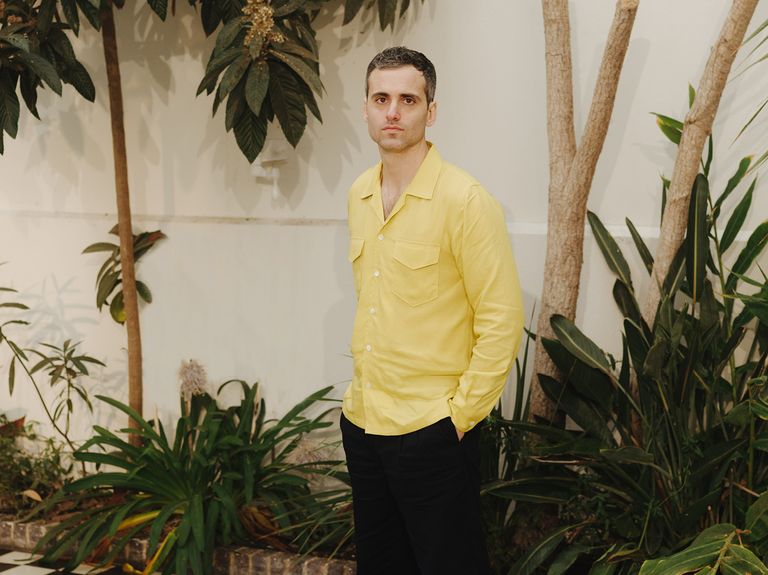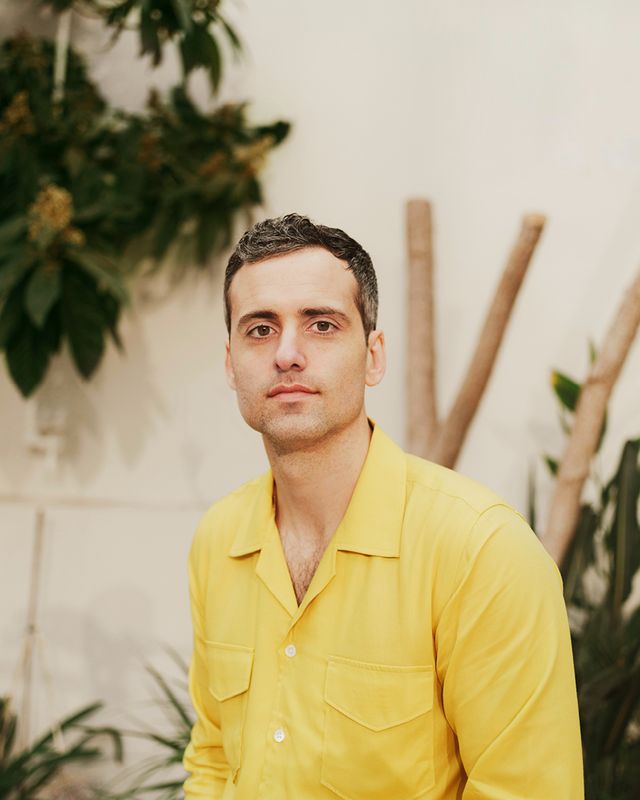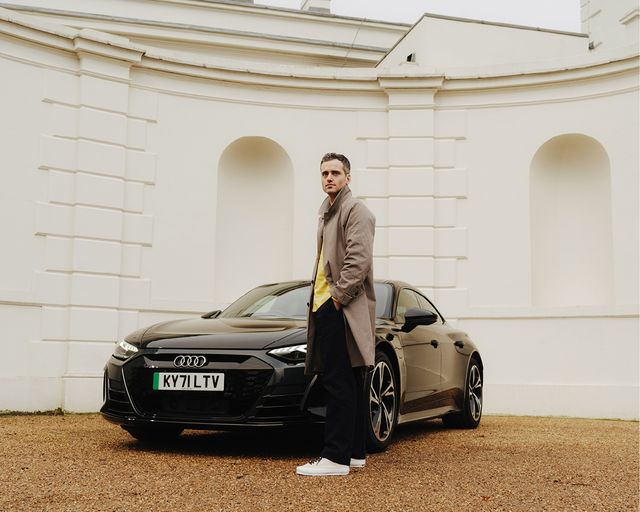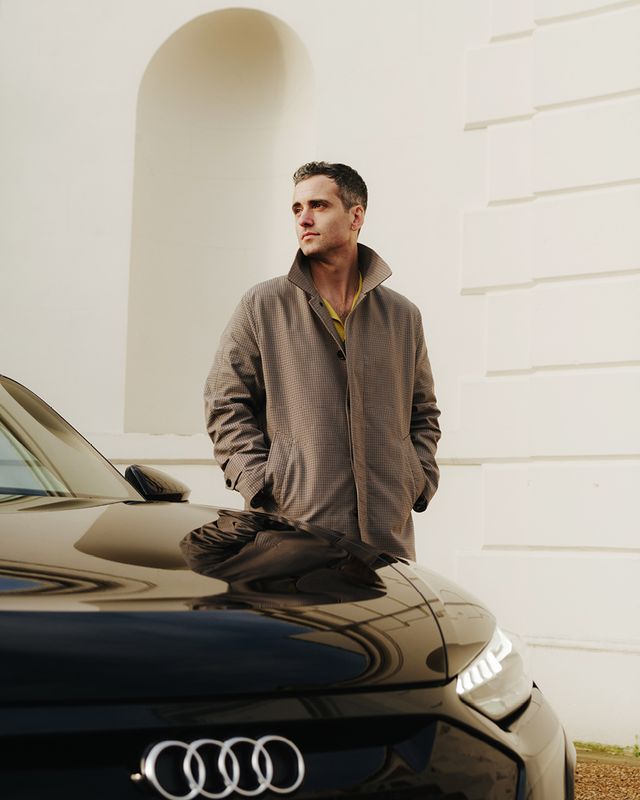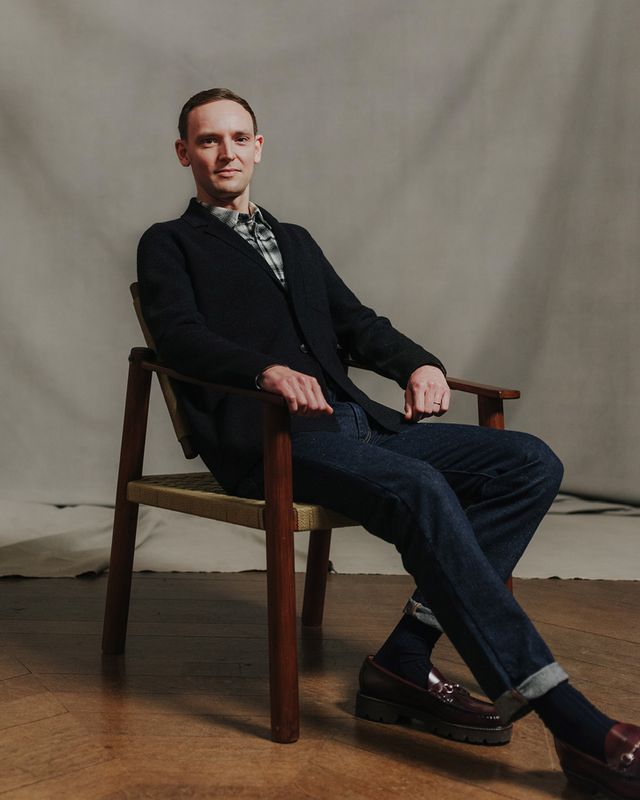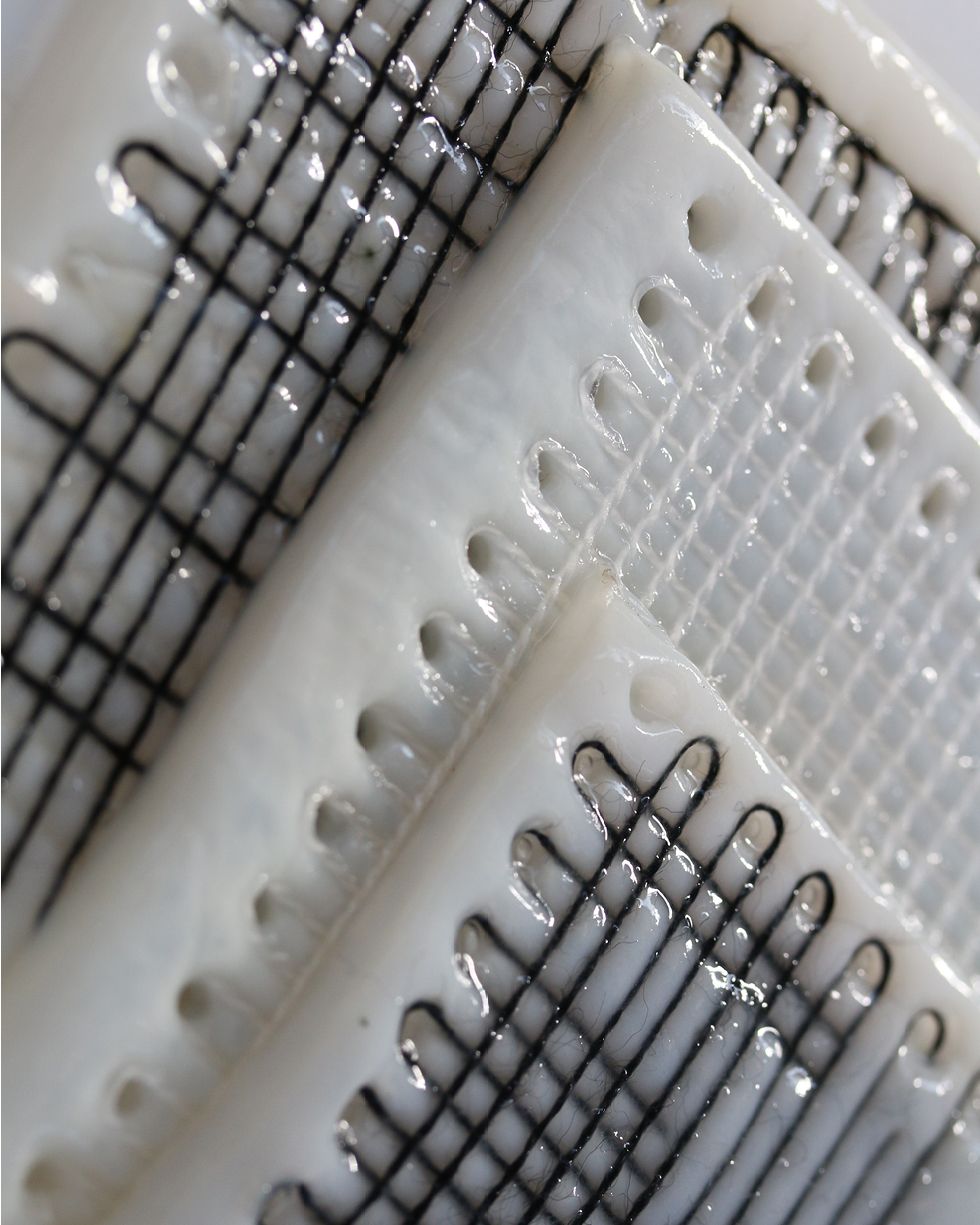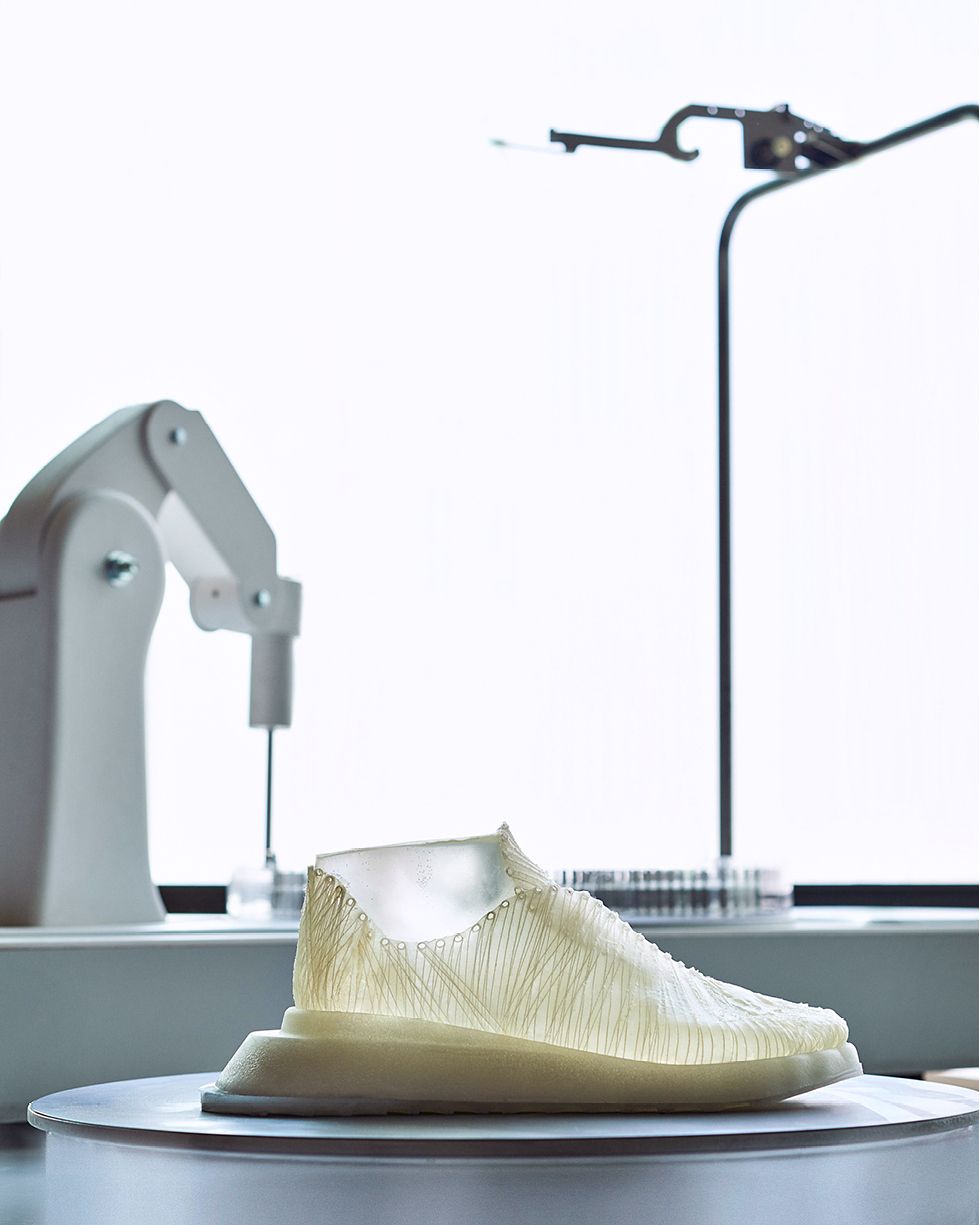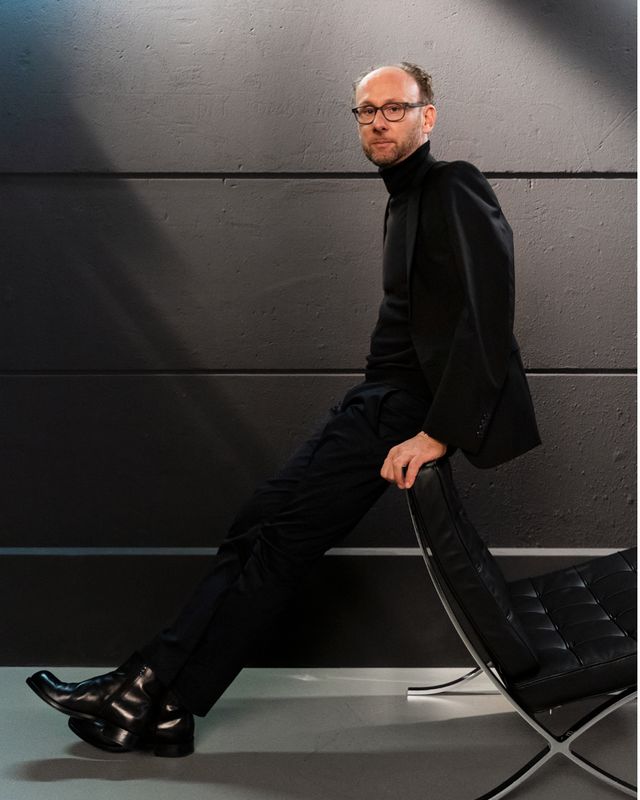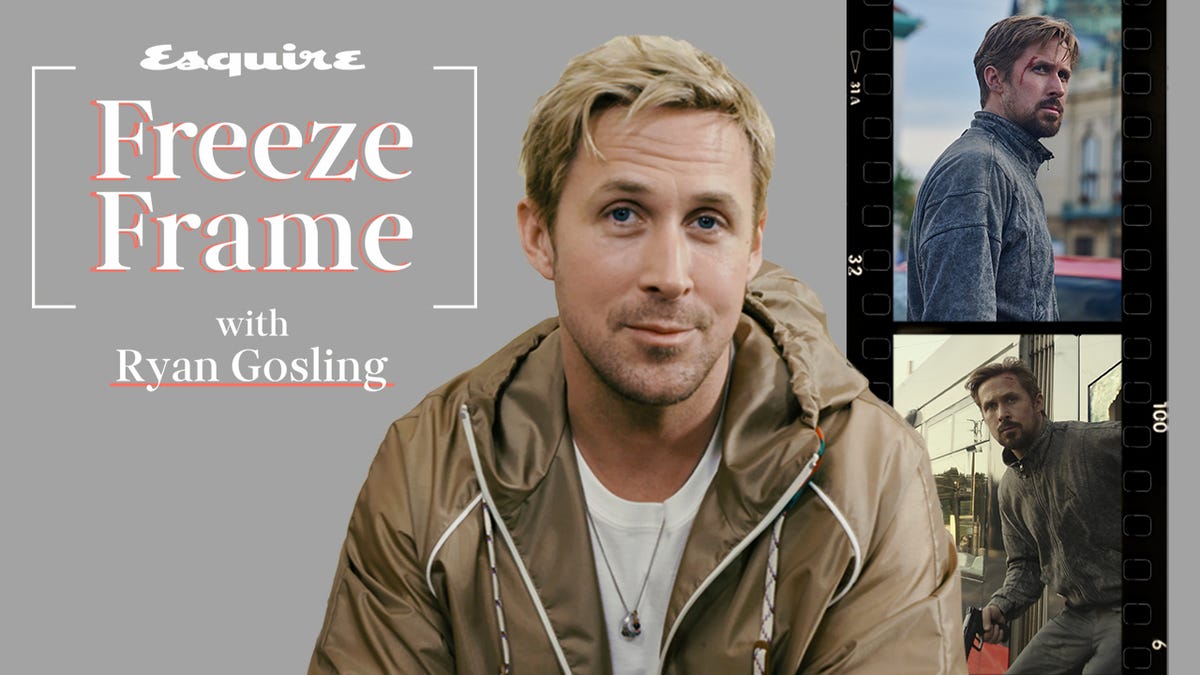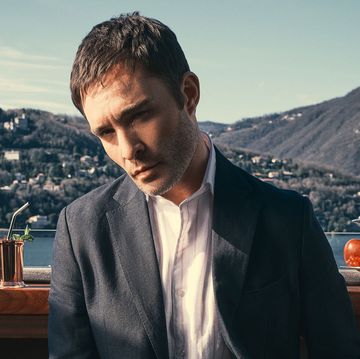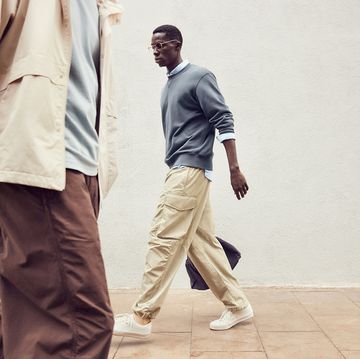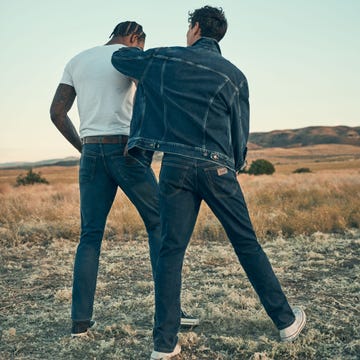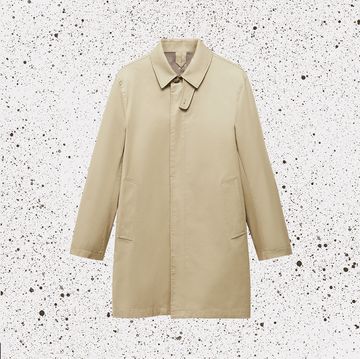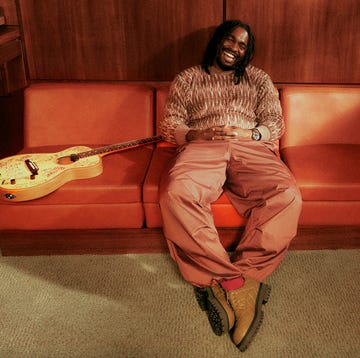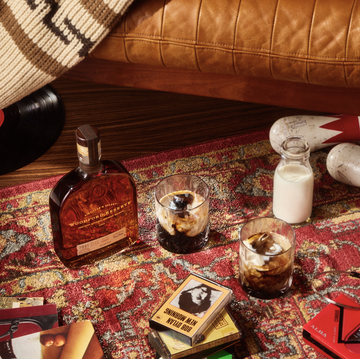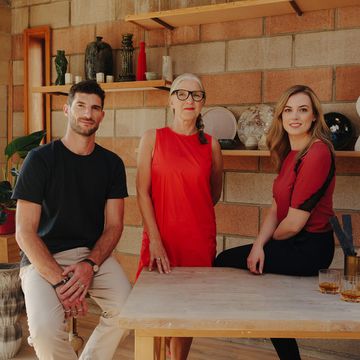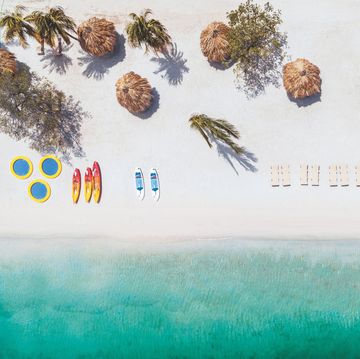Together with Audi, we are championing future-thinking designers who are working towards a more sustainable way of life — without compromising on style.
Here are their stories.
Freddie Cowan, Creative Director at Basic Rights
“We were making our third album, English Graffiti, and I was obsessed with getting the right outfit,” says Freddie Cowan, The Vaccines’ lead guitarist and founder of menswear brand Basic Rights, when remembering his decision to start making clothes. “I knew that when I had it, I would be able to stop thinking about my style and be able to commit my mind to playing the guitar and making music. So I thought the best thing to do was to start my own label.”
Many of us will admit to going too far in the name of obtaining covetable menswear. But starting your own fashion brand? Well, that’s a whole new level of dedication. However, this is not yet another celebrity vanity project. No, Basic Rights has a far more meaningful mission statement at its core.
“The intention is to provide a uniform for creative spirits. It's tailoring meets utilitarianism: tough, beautifully made and durable,” states Cowan. “I wanted to cleanse my thinking and behaviour in order to give maximum availability to my music — and I want the same for other creatives.”
It’s not just a positive metaphysical experience Cowan is offering, either, because they're also seeking out and developing a number of sustainable initiatives right across the brand, from the manufacturing process to future implications. “Sustainability has become a very important part of the business,” explains Cowan. “We use a lot of recycled fabrics and have something called the Rubbish Collection, which is where we buy end-of-the-roll luxury fabrics that were going to get thrown away and make them into a limited product line to eliminate that waste. We also have a partnership with Trees for the Future, so there’s been a tree planted for every item sold. And we have plans to offer a repair service for everything purchased within a 24-month period to help reduce overconsumption. However, I still think we could do, and will do, much more.”
Although Cowan has put a lot of work into his brand, you may be surprised to find out that fashion is no longer a top priority for him. "I don’t think clothes should occupy a whole position in anyone’s life,” he reveals. “That’s no disrespect to the great artists in fashion, it’s just for me, as a creative, it should be secondary. We should find something that works for us and then get on with what is really significant.”
It may seem odd for the creative director of a fashion label not to have style as his number one obsession but that’s what makes Basic Rights so special. While others chase trends and cut corners, Cowan prioritises quality over quantity and creativity over quickness, which is the reason he uses premium materials such as Tencel (a biodegradable fibre made from wood pulp). It may cost a little more but for Cowan it’s just a necessary step in creating a less damaging lifestyle.
And looking good while you ascend to a new level of style enlightenment? Well, that’s just a happy coincidence.
Ben Reeve, Bioengineer at Modern Synthesis
Every year, approximately 300 million shoes are thrown away in the UK. And if the soles of these shoes are made from plastic, there’s a very strong chance that they could sit in landfill for up to 1,000 years. Pretty grim statistics — especially for you sneakerheads out there. So, what’s the solution? Go about our busy lives barefoot? Hardly. We need to think smarter rather than harder (or sadder), which Ben Reeve, bioengineer and co-founder of biomaterial company Modern Synthesis, is doing with a unique and natural regenerative process.
“Modern Synthesis design and develop materials and products aimed at reducing environmental impact for the fashion industry, using microbes to grow alternatives to the likes of plastics,” Reeve explains. “We have patented progressive technologies that allow us to take a natural textile, such as cotton or linen, and actually grow microbes around it to produce a brand new material. It’s lightweight, high performance and much more sustainable than using an animal or plastic product because at the end of its life, it either biodegrades or can be recycled.”
If 3D printing messed with your head, then buckle up because growing your next penny loafers using the power of nature might just send it into a total meltdown. “My favourite project so far has been for a shoe that involved using biotechnologies to make the material dye itself. What happens is that as the material grows it also produces a black pigment, which means that the shoe doesn’t have to be dyed afterwards,” Reeve reveals excitedly.
But is it too little too late when the oceans contain fish with bellies full of neon charity bracelets from the early Noughties? According to Reeve, no. And it’s reassuring to hear that from a scientist. “I’m positive a lot of solutions exist but it’s a depressing time to be a biologist,” he says. “Everyone is cataloguing how the world is dying and it’s frustrating because biology is amazing at natural manufacturing. We just need to get the storytelling right so that people realise the capabilities of these new materials.”
We understand that this may be a hard (and slightly complex) story to swallow, but trust us, it’s easier to digest than plastic.
Marc Lichte, Head of Design at Audi
“While at university, I entered a contest judged by Hartmut Warkuß, then Audi’s chief designer,” explains Audi’s head of design, Marc Lichte, when recalling how his car-design career began. “After I graduated, he brought me to Volkswagen, where I had the opportunity to develop my skills before I joined Audi in 2014 as chief designer. With my first Audi concept car, the Prologue, my team and I established the new design language, which you’ll find in every current Audi on the road.”
Innovating for such a prestigious company is no easy feat, especially when said brand is 113 years old. But instead of viewing it as a problem, Lichte sees it as an opportunity. “We are at the beginning of a radical change in the whole industry,” he reveals. “With electromobility, the car has already been completely transformed in its construction. The visible power centre is no longer the engine, but rather the large battery in the underfloor. In addition, there are the possibilities for digitalisation and automated driving. This will fundamentally alter the automobile in the coming years. With the design process for the Audi e-tron GT, we began with one question: ‘Who will be sitting in a new model and what does the passenger want to do there?’”
“With great power comes great responsibility,” goes the old comic book quote, and Audi is proving just that when it comes to developing its vehicles for a more environmentally conscious audience. “Sustainability is becoming the main driver for our consumers, not just in terms of the product itself but also in development and manufacture, so Audi knows it needs to move to reflect that in its operations,” Lichte explains. “For us, there needs to be a symbiosis between technology and customer need. A good example is the changed perception of luxury in the age of electric mobility. For this reason, we have developed a completely leather-free interior option package for the first time with our new Audi e-tron GT. Design must go hand in hand with the right attitude.”
Find out more at audi.co.uk

